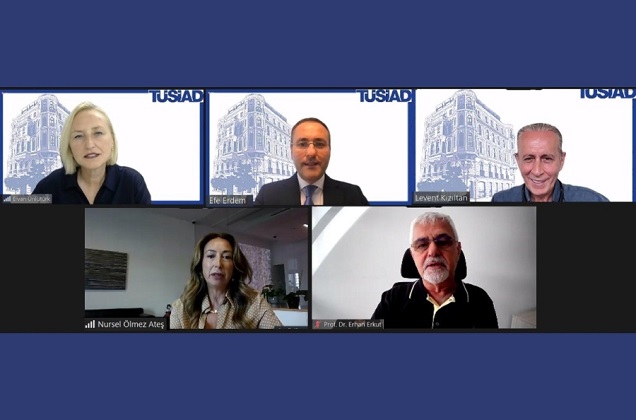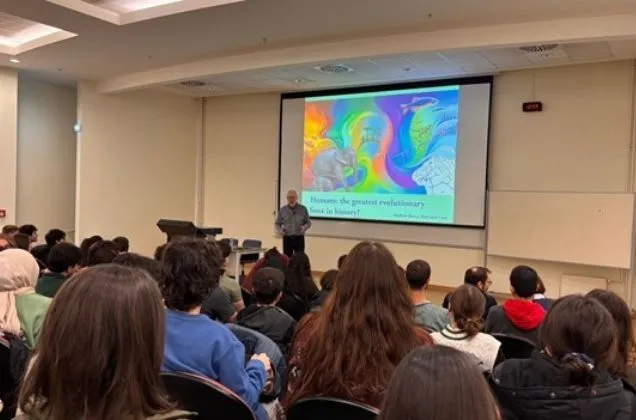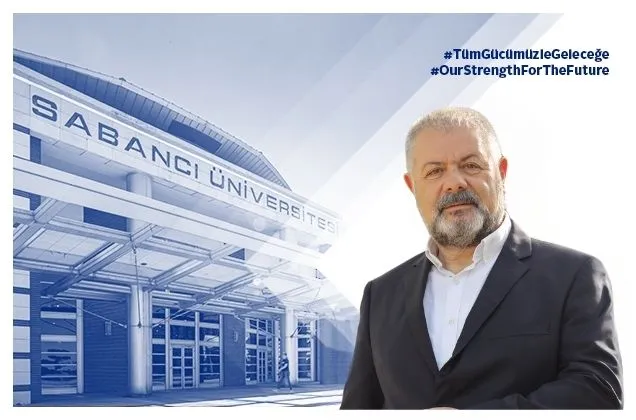13/12/2023
"The Future of Jobs in the Light of the WEF Report" was organized by the TÜSİAD-Sabancı University Competition Forum (REF). At the event, WEF representatives provided information on the Future of Jobs 2023 Report and discussed predictions about the effects of the transformation in labor markets in Turkey.
In today's world, where green and digital transformation deeply shapes the dynamics of global competition, adapting the workforce to new-generation competencies becomes of great importance. The Future of Jobs Report has been prepared by the World Economic Forum (WEF) since 2016 to provide innovative insights on how the jobs of the future and the competencies sought in the workforce will be shaped in light of global trends. TÜSİAD-Sabancı University Competition Forum (REF), established in cooperation with TÜSİAD and Sabancı University, ensured that the survey conducted within the scope of the Future of Jobs 2023 Report was delivered to a wide sample in our country.
Fatih Kemal Ebiçlioğlu, TÜSİAD Board Member and Chair of the Industry Policies and Investment Environment Round Table, made the opening speech of the online meeting held on Tuesday, September 26, 2023, in order to examine the impact areas of the transformation in the workforce and to examine the aspects that contribute to the relevant policies based on the findings of the Future of Jobs 2023 Report, which is described as one of the most exciting projects summarizing the future of the labor market. In his speech, Ebiçlioğlu touched upon the following: "In our study entitled ‘Building the Future with a New Understanding’, which we shared with the public on the fiftieth anniversary of TÜSİAD, we proposed a road map for our country's development goal that focuses on people as well as science and institutions. The analyses in our report entitled ‘Overview of the Present Day of Turkish Industry and Suggestions’, which we prepared within the scope of TÜSİAD-Sabancı University Competition Forum, reveal that we can only achieve high value-added industrial production by preserving a highly qualified workforce and providing digital competencies to our young and dynamic employees. In this context, developing and protecting the qualified workforce in our country, which has the third largest workforce in Europe, is among our priorities in the second century of our Republic."
Within the scope of the program, Sam Grayling, Insight Lead at the WEF Center for the New Economy and Society, and Ricky Li, Insight Product Specialist at the WEF, shared their evaluations on the findings of the Future of Jobs 2023 Report.
In the panel session titled "A Look at the Future of Jobs in Turkey from the Perspective of Global Trends", moderated by Elvan Ünlütürk, TÜSİAD Board Member and Social Development Round Table Chair, Efe Erdem, TÜSİAD New Generation Industry Working Group Chair, Erhan Erkut, Vice-President of MEF University, Levent Kızıltan, TÜSİAD Chair of New Technologies Working Group, and Nursel Ölmez Ateş, Head of Human Resources and Corporate Communications Group at Borusan Holding, were speakers. While the transformation of jobs in our country was discussed in the panel, the studies currently carried out and those that need to be conducted in the future to close the skills gap that will arise were explained and suggested solutions for the public sector, business world and civil society were shared.
Commenting on the issue at the end of the session, Elvan Ünlütürk, TÜSİAD Board Member and Social Development Round Table Chair said, “People, who are the source of technological progress, have to adapt to constantly changing conditions and continuously develop themselves, prioritizing the sustainability of our world. While we are at such a critical turning point, we, as Turkey, must take action with all our resources, especially our human resources. We all have important roles to play in this regard, especially the public, academia, civil society and the private sector." Ünlütürk continued by touching on the importance of a data-based holistic public policy, a modern education policy that can provide the competencies of the future, and collaborations in these areas. She also emphasized the importance of adopting lifelong learning in the working life of the future, keeping the qualified workforce in our country, having women working in qualified jobs, and eliminating gender inequality.




